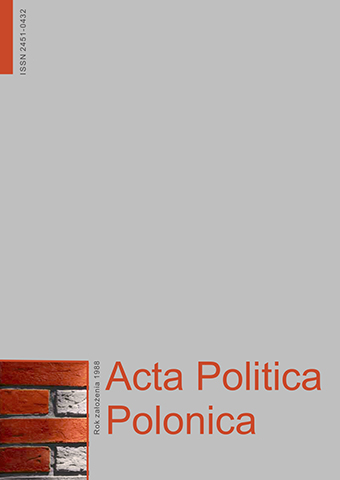
ISSN: 0867-0617
OAI





Issue archive /
1/2010 (23)
Relationship between Religion, Politics and Society in Eastern Europe after 1989 as exemplified by the Czech Republic and Poland
| Authors: |
Tomáš
Bubík
Department of the Study of Religions, Faculty of Philosophy and Arts, University of Pardubice |
| Keywords: | religion, state-church relations, post-communist transformation, Eastern Europe |
| Data publikacji całości: | 2010 |
| Page range: | 15 (43-57) |
Abstract
In the last century, religion was discarded from participation in public life. It was believed that churches had already finished their historical role and thusthe dominant position in European society was to be undertaken by the state institutions. Churches were actually kept within limits that made them“harmless” in the sphere of public life. Religion was supposed to assume a strictly private role, not to be any longer a public affair. In the last century’sbattle between state and church, the state was believed victorious. This paper attempts to clarify the position and the role of religion in European society as ithas been changing since the breaking of the communist regime.
Bibliography
| 1. | Beźnic S., Sekty w opinii Polaków – badania Demoskopu, „Nomos. Kwartalnik religioznawczy” 2002, t. 39/40. |
| 2. | Doktor T., State, Church and New Religious Movements in Poland, w: Church – State. Relations in Central and Eastern Europe, red. I. Borowik, Kraków 1999. |
| 3. | Doktor T.. Discriminatory Attitudes towards Controversial Religious Groups, w: Religion and Social Change in Post-Communist Europe, red. I. Borowik, M. Tomka, Kraków 2001. |
| 4. | Eberts M., Torok P., The Catholic Church and Post-Communist Elections: Hungary and Poland Compared, w: Religion and Social Change in Post-Communist Europe, red. I. Borowik, M. Tomka, Kraków 2001. |
| 5. | Fiala P., Náboženství a evropská politika, “Universum. Revue české křesťanské akademie” 2006, nr 3. |
| 6. | Libiszowska-Żółtkowska M., Kościoły i związki wyznaniowe w Polsce. Mały słownik, Warszawa 2001. |
| 7. | Lužný D., Náboženská situace v České republice po roce 1989, „Religio. Revue pro religionistika” 1998, nr 2. |
| 8. | Maier H., Politická náboženství. Totalitární režimy a křesťanství, Brno 1999, t. 56. |
| 9. | Marczewska-Rytko M., Ruch chrześcijańsko-demokratyczny w procesie przemian w Polsce, w: Religia chrześcijańska a idee polityczne, red. B. Grott, Kraków 1998. |
| 10. | Michel P., Polityka i religia. Wielka przemiana, Kraków 2000. |
| 11. | Norris P., Inglehart R., Sacred and Secular. Religion and Politics Worldwide, Cambridge University Press 2004. |
| 12. | Pasek Z., Badania nad NRR z perspektywy Pracowni Dokumentacji Wyznań Religijnych w Polsce Współczesnej Instytutu Religioznawstwa UJ (komunikat), „Nomos. Kwartalnik Religioznawczy” 2002, t. 39/40. |
| 13. | Spousta J., České církve očima socilogických výzkumů, w: Náboženství v době společenských změn, Brno, Mezinárodní politologický ústav, red. J. Hanuš, MU Brno 1999. |
| 14. | Štampach I., Náboženské spektrum České republiky, w: Náboženství v době společenských změn, Brno, Mezinárodní politologický ústav, red. J. Hanuš, MU Brno 1999. |
| 15. | Tomka M., Religious Change in East-Central Europe, w: Religion and Social Change in Post-Communist Europe, red. I. Borowik, M. Tomka, Kraków 2001. |
| 16. | Tretera R.J., Stát a církve v České republice, Kostelní Vydří 2002. |
| 17. | Yelensky V., The Ukraine Church and State in the Post-Communist Era, w: Church – State. Relations in Central and Eastern Europe, red. I. Borowik, Kraków 1999. |